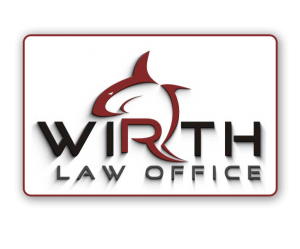Major Crimes Act Says That for Crimes Committed on Tribal Land, by Native Americans or Indians, That the State Court Has No Jurisdiction Over Them
Video Transcribed:
How do you determine if a victim is an Indian under the McGirt Precedent in Oklahoma? I’m Oklahoma attorney James Wirth and we’re about to talk about how to find out if a victim of a crime is an Indian, as it relates to the law. All right. This is all dealing with, again, the McGirt decision that is having huge ramifications in Oklahoma, regarding jurisdiction of state courts to prosecute people.
 I’m in the McGirt, the court found that the 1866 boundaries of the Muskogee Creek Nation were never disestablished when Oklahoma became a state.
I’m in the McGirt, the court found that the 1866 boundaries of the Muskogee Creek Nation were never disestablished when Oklahoma became a state.
So, that all, almost all of Tulsa County and surrounding counties are still reservation land and that same precedent applied to the remainder of the Five Civilized Tribes, means that most of Northeast Oklahoma is actually Indian territory, which means that the state has limited jurisdiction to charge people. What the Major Crimes Act says, is that for crimes committed on tribal land, by Native Americans or Indians, that the state court has no jurisdiction over them.
For crimes committed against Indians on tribal land, reservation land, the state government has no jurisdiction over them. It has to be charged in federal court.
For all of these people, over the last hundred plus years that have been tried and convicted in state court, for a lot of them, if they’re either tribal members, Indians, or if it’s a major crime and the victim was an Indian, that state court never had jurisdiction to do it in the first place and those convictions are at risk for being vacated.
In order to determine that though, you have to know whether the victim of the crime is an Indian. It’s lot easier to determine whether the defendant is an Indian. If the defendant is an Indian, you already know it needs to be in a federal court. If it’s already been convicted in state court, it’s at risk for being vacated and maybe re- picked up, retried, refiled in federal court.
But, if the perpetrator of the crime, the defendant is not an Indian, how does the prosecutor find out? How does the defense attorney find out if the victim is an Indian? Well, it’s not all that simple. First off, you can look at the police records to see if their ethnicity is listed. However, those generally aren’t very accurate. That, by itself, is not going to be enough to prove the case. Next, you can look at talking to all the various tribes.
There is no centralized database where you can search all the tribal members to see if they’re a member of one of the tribes. No, you have to individually go to each tribe and ask, “Hey, is this person a tribal member? Is this person a tribal member?” Well, there’s 39 tribes with home bases in Oklahoma. There’s over 500 tribes in the United States, so that can be a bit daunting.
Another option, at least as for the Five Civilized Tribes, is you can do genealogy on the victim to determine if they have a lineal descendant up above in their family tree, around the time of the Dawes Rolls in the early 1900s, it was listed on the dog’s rolls.
If you can find their genealogy history and who their grandparents, parents, and so forth are, and see if one of them is listed on the Dawes Rolls, then that’s an excellent indication that they are an Indian and may have tribal membership and that can be looked into. To answer the question, there’s no great way to do it yet. It’s going to require a lot of work. You’re going to want to look, to see if there’s any various things that might make you suspicious, that they may be a tribal member.
Then you have to do the work, the leg-work to do the investigation, to call the various tribes and see if you can confirm that. For a pending case, you may be able to do some discovery requests to determine that. You may be asked some questions at a preliminary hearing.
You may be able to ask some questions at a trial, though obviously, this is something you want settled pretrial. If you’re going through a scenario like this, you’re going to want the advice from an attorney, related to your specific circumstances. If you want to talk to somebody in my office you can contact us by going to makelaweasy.com.



